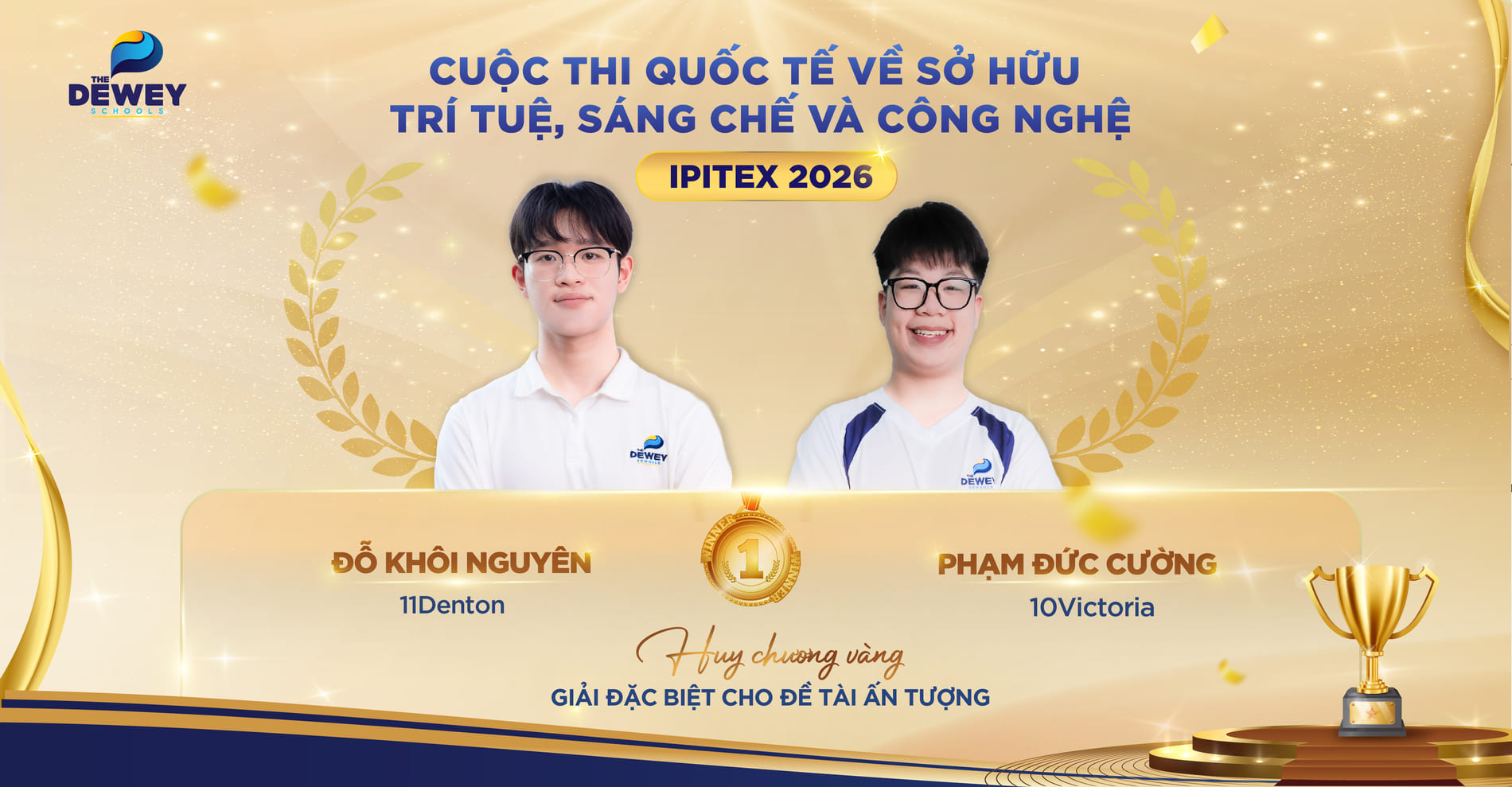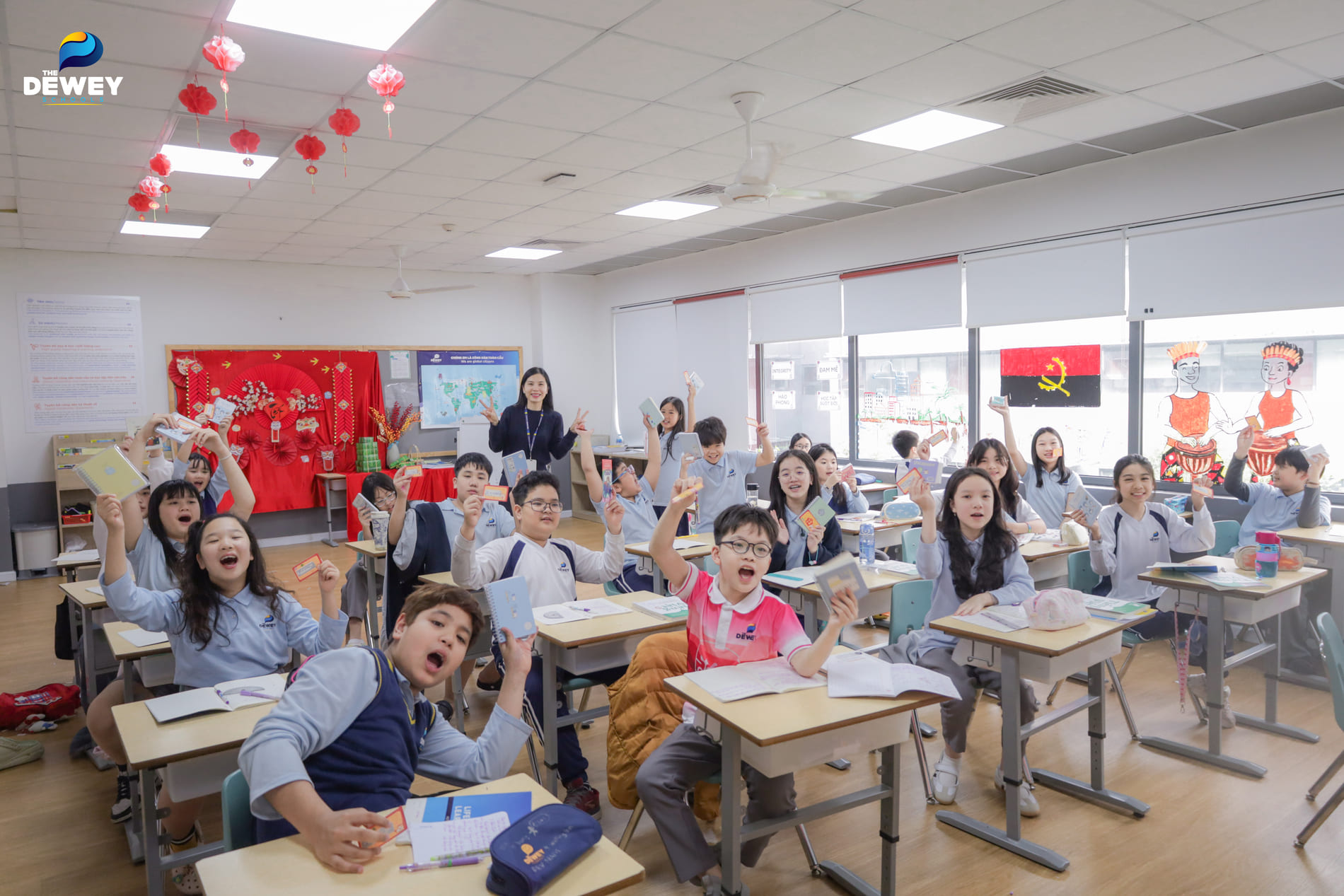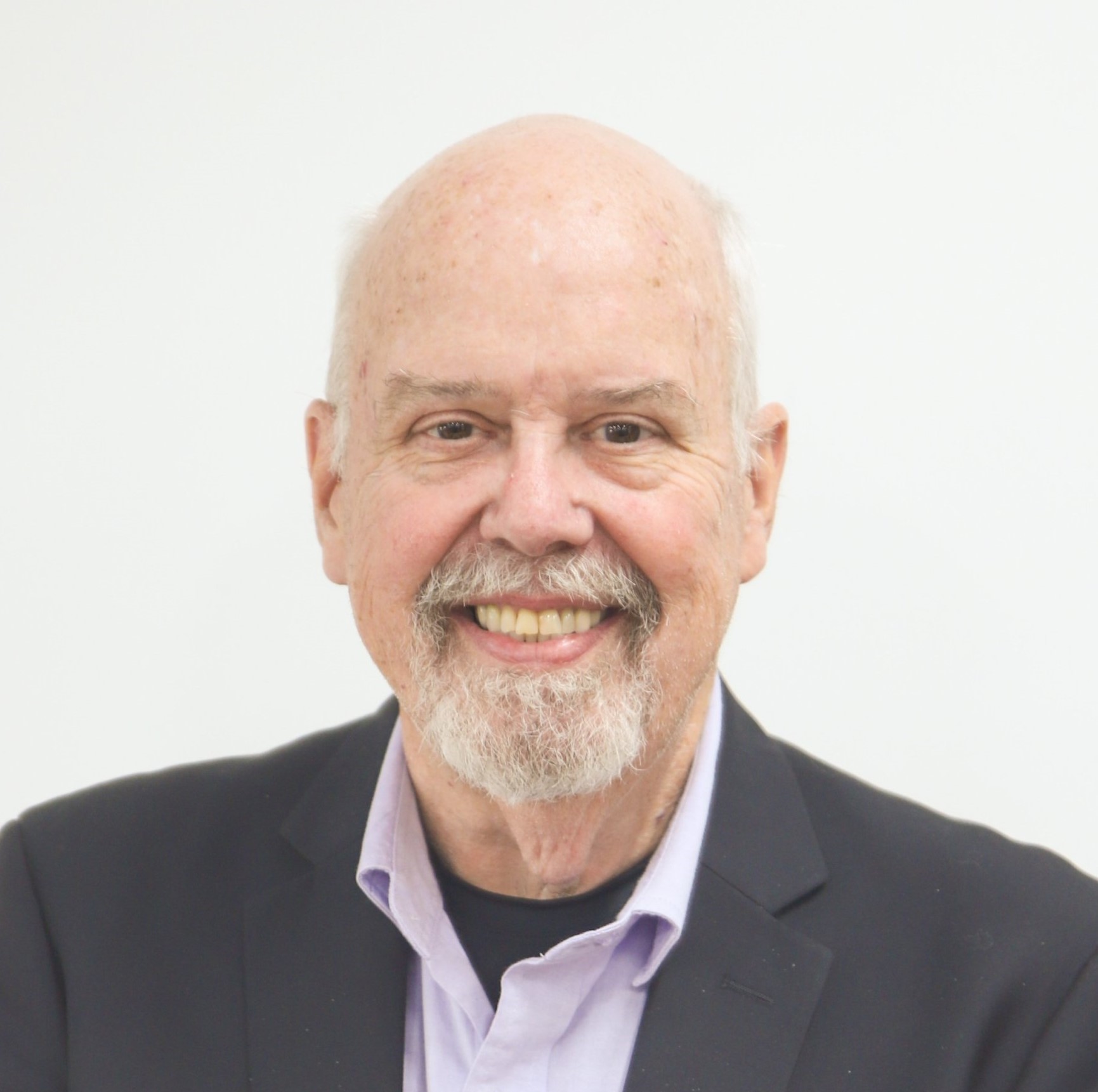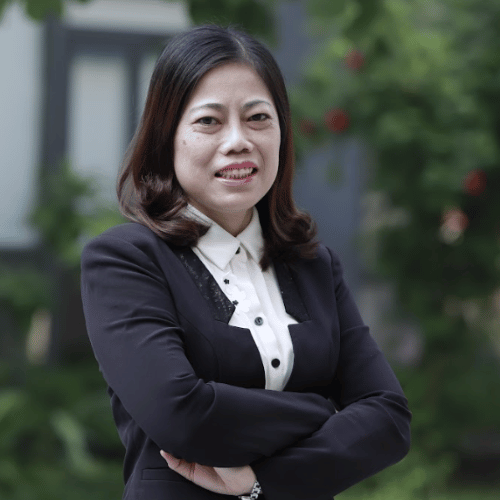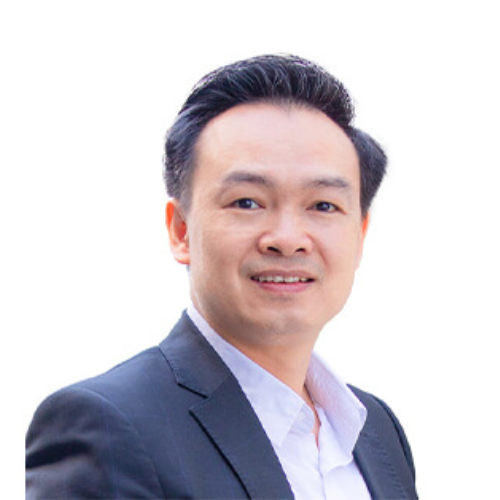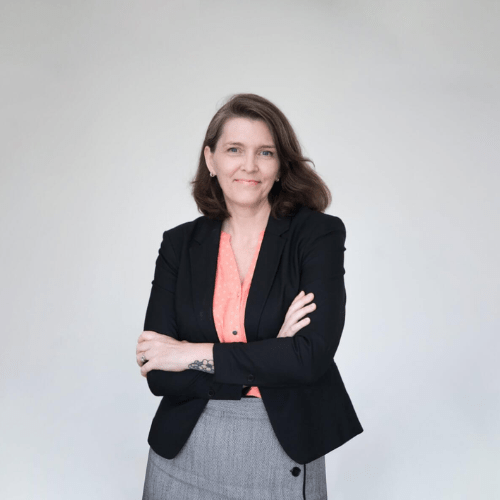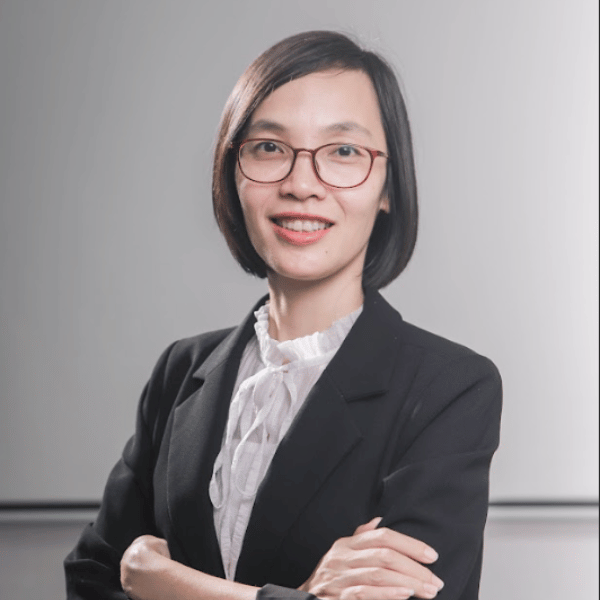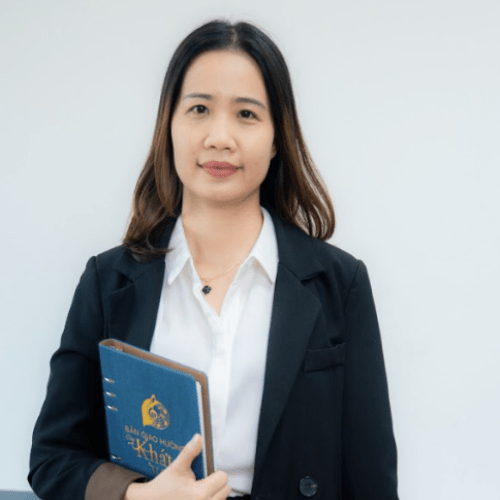Back in their school days, many from the 8X and 9X generations might have asked themselves: Why do we learn math? How much of what we’ve learned in math class can actually be used in real life?
Unlike previous generations, today’s children no longer need to ask such questions. Thanks to the Year-End Math Showcase at Dewey, parents have come to understand a modern approach to learning mathematics where being “good” at math is no longer measured by the number of exercises completed. Instead, mathematics becomes a set of concepts closely tied to everyday life: measuring the length of a study desk, applying logical reasoning, or forming the foundation for fields such as construction, business, and information technology.

Rather than merely reviewing grades on a report card, Dewey elementary school parents were able to witness their children’s year-long mathematical journey through self-made projects and student-led performances. Inspired by the popular Vietnamese year-end show “Year-End Reunion”, Dewey students transformed into “Kitchen Gods” representing different areas of mathematics: the Natural Numbers God, Addition & Subtraction God, Geometry God, Equation God, and more. Through witty and creative performances, these young actors guided the audience through pieces of mathematical knowledge, most notably, recreating the very process of forming concepts that they had engaged in throughout the school year.
For example, to grasp the concept of “perimeter,” students physically measured objects like their desks and classroom door frames using string and rulers. From those real measurements, they independently derived how to calculate the total length of all sides. When learning about “equations,” rather than simply being told that x + 3 = 5 means x = 2, they participated in a gift-exchange game with hidden rules, sparking natural and enthusiastic thinking about how to find the unknown number.
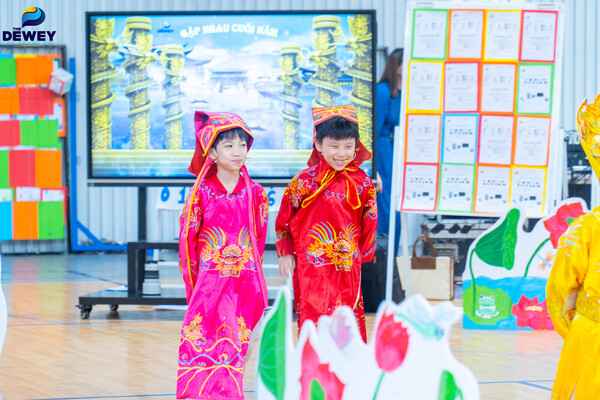
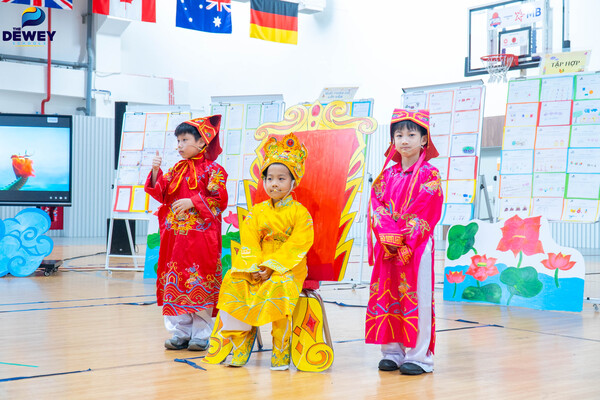
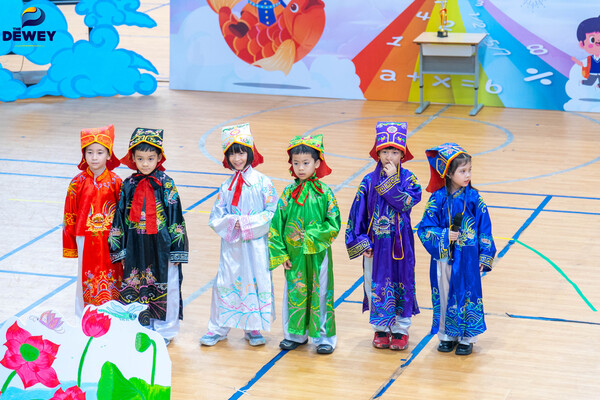
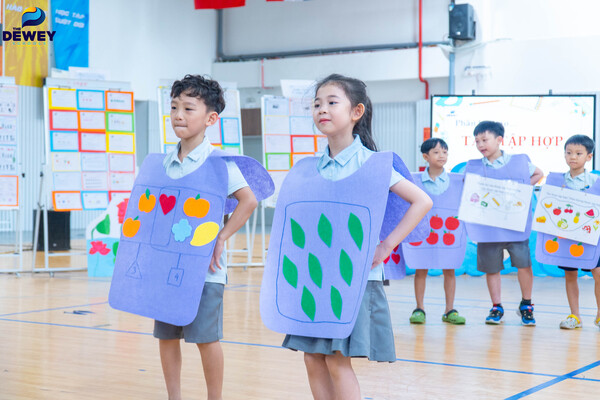
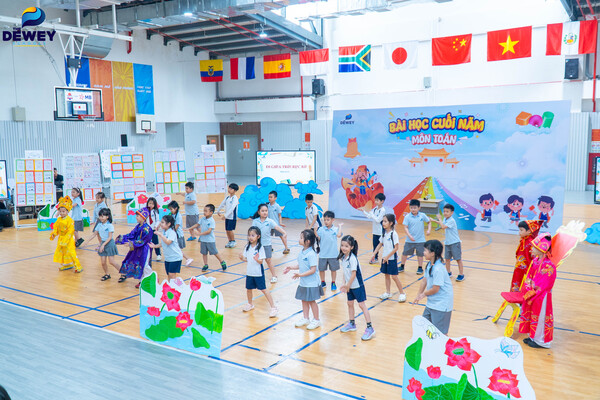
Parent Nguyen Thu Loan shared, “I was quite surprised to see my child learning to solve equations as early as Grade 2- something we only started in Grade 3 back in the day. But after witnessing firsthand how children approach math at Dewey, I feel completely reassured. The students learn through hands-on experiences, developing a natural and enthusiastic love for mathematics. That’s exactly what gives me confidence in entrusting my child to this school.”
The lively presentations were just the beginning. The atmosphere in the gymnasium continued to heat up with the “Golden Bell Challenge,” where students competed in a thrilling math quiz filled with tough questions. One of the most heartwarming moments came when parents jumped in to help their children, reminding everyone that a child’s learning journey is always enriched by the loving presence of family.
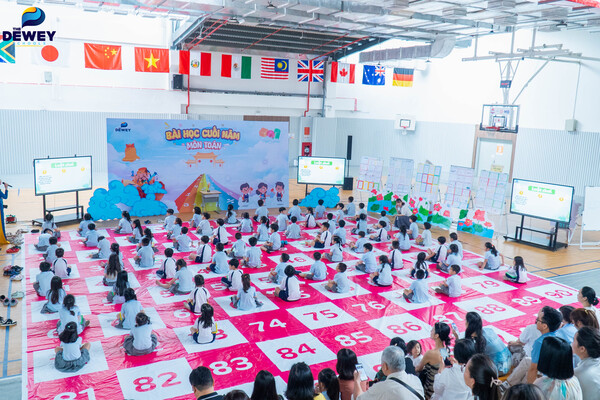

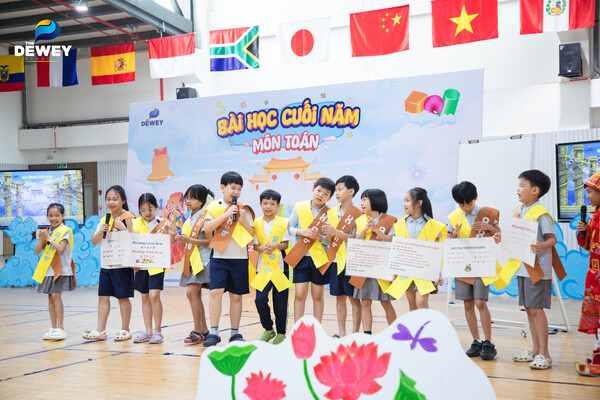
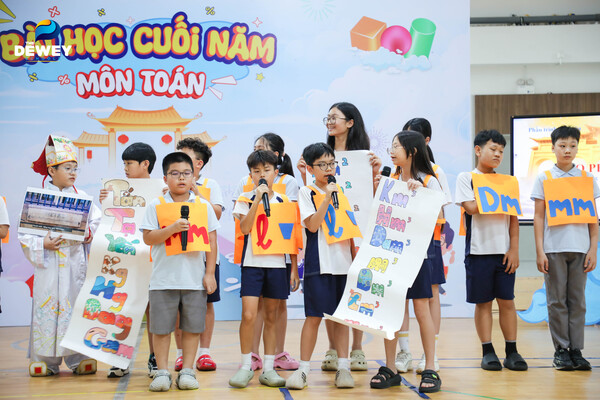
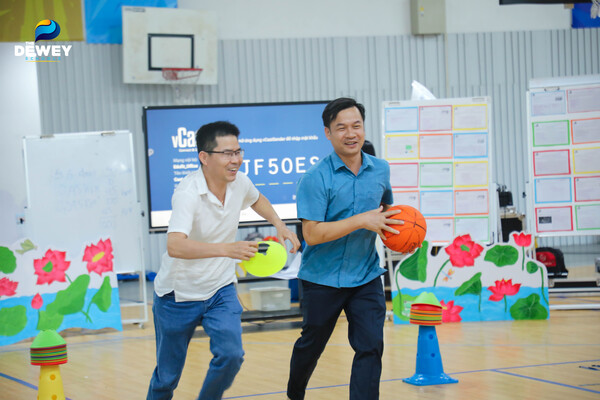

It’s through these kinds of experiences that students are empowered to construct mathematical concepts themselves and apply their knowledge with creativity. In these moments, every child becomes a storyteller, a creator, and a living example of a humane educational philosophy: deep understanding – lasting memory – flexible application.
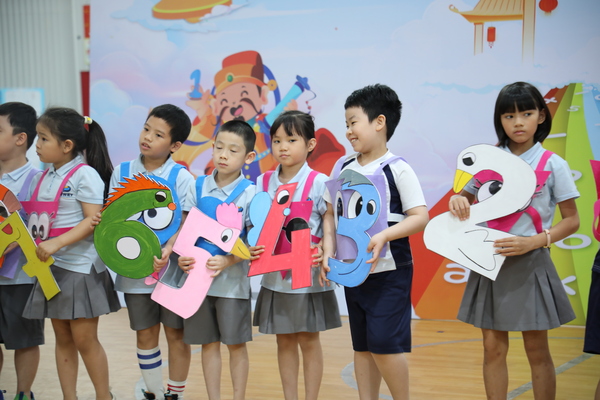
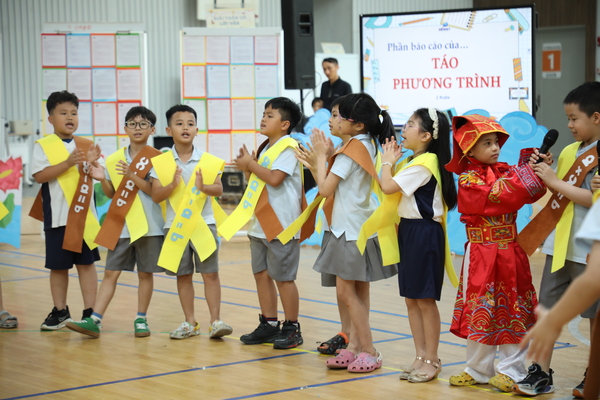
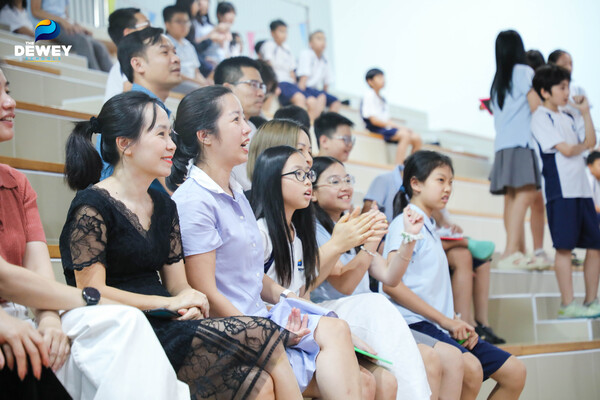
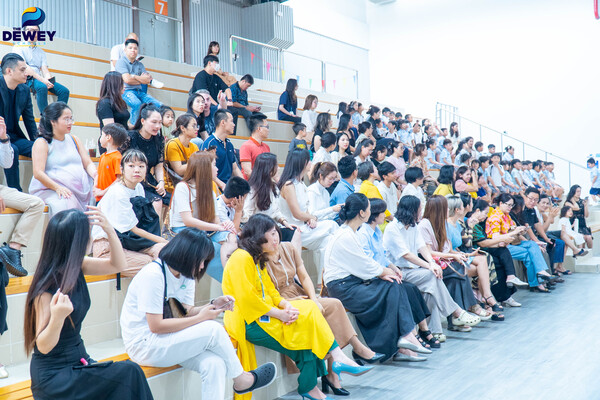
With this approach, Dewey doesn’t just teach students how to solve a problem, it teaches them how to think, how to ask meaningful questions, and how to find answers not only in math, but in their own lives. And who knows – perhaps from these simple, joyful lessons today, tomorrow’s mathematicians, architects, and innovators will emerge – each one sparked by the passion ignited in Dewey’s vibrant and inspiring classrooms.

